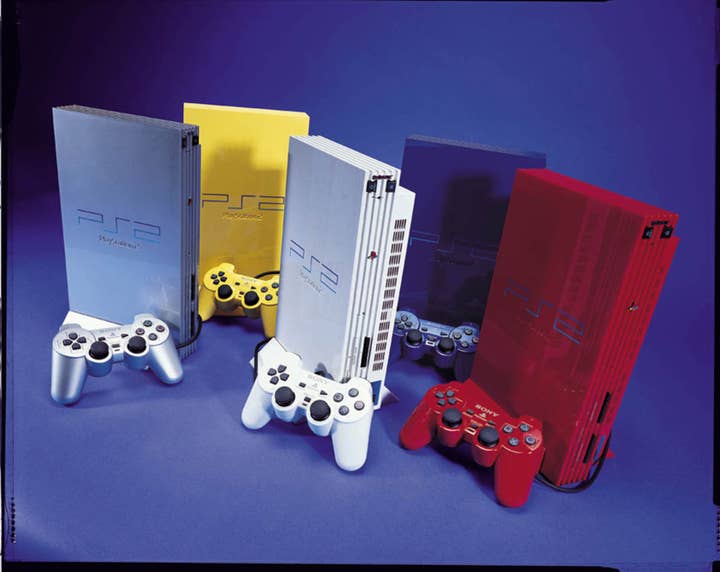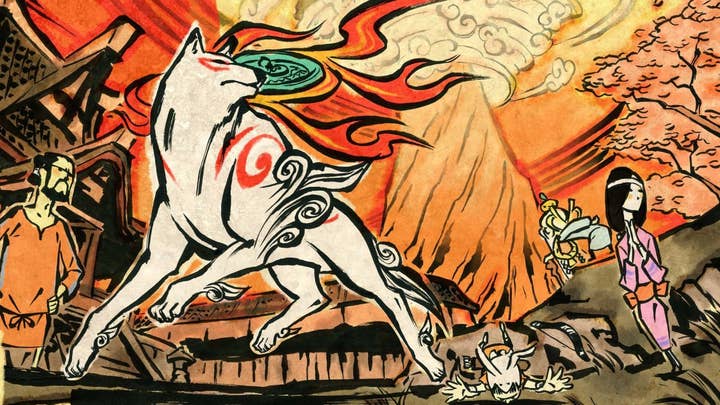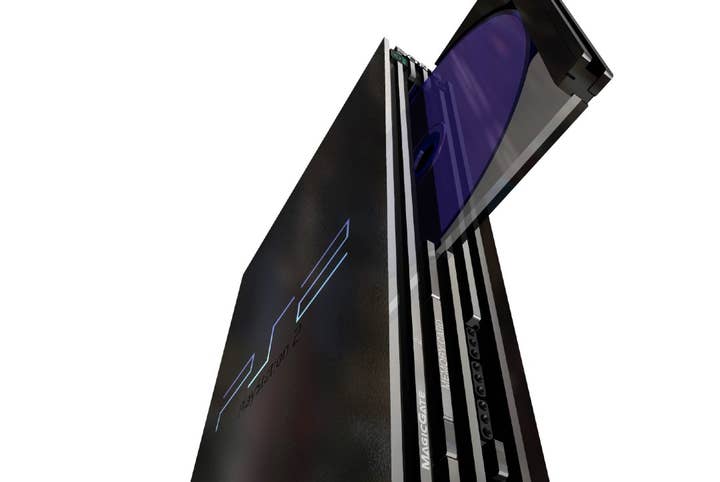Learning the lessons of the PlayStation 2 | Opinion
Twenty years after it arrived in Japan, the most successful console of all time still has lessons that are relevant to the industry today
This week saw the 20th anniversary of the launch of the PlayStation 2 in Japan -- the beginning of a remarkable era for console gaming.
The PS2 ultimately sold 155 million units worldwide, a record-breaking total that seems unlikely to be rivalled by any other console platform in the near future. Less commonly cited but even more extraordinary in many ways are the software numbers for the platform. Around 1.5 billion units of PS2 software were sold over the years, and though various estimates float around for the number of software titles released on PS2 -- complicated, I suspect, by different ways of counting SKUs and games with different names in various territories -- Wikipedia currently curates a list of almost 4,500 entries.
The 20th anniversary of the PS2 mostly serves to make those of us who were working in the games business at the time feel very old, of course, but it also serves as an opportunity to reflect on how things have changed since the March of 2000. It was an era when consoles ruled the roost; smartphones weren't even a twinkle in Steve Jobs' eye at that point, and the PC platform was going through one of the doom-and-gloom points in its cycle, as retailers reduced shelf space for PC games and digital distribution -- awaiting the arrival of Steam some years later -- remained an unfulfilled dream.
The PS2 launch and how the console and its market developed remain important things to study from a business perspective
Things were simpler in many regards. Video games were all but synonymous with consoles at that point, and there was one business model to rule them all -- packaged games at a largely consistent price point. It's easy to be nostalgic for that simplicity, though it certainly had its downsides; not least the high barriers to entry that effectively prevented anything like today's thriving indie development sector from taking root.
It was also an era when territorial barriers were much higher in the industry. Japan, North America and Europe all had distinct line-ups of software, and even the launch date for the PS2 hardware itself was staggered across territories to an extent that would attract consumer outrage today -- the anniversary of the European launch, as a consequence, isn't for another nine months.
Rather than simply feeling nostalgic (or old), though, I think that the PS2 launch and how the console and its market developed remain important things to study from a business perspective. The world may have been different then, but the core of what it takes to launch a console and convince consumers to invest in it hasn't changed all that much -- and the PS2 remains the single most successful example of that in the industry's history. Moreover, for all that the market may be more complex and diversified today than it was 20 years ago, there are also some notable parallels between the PS2 and its rivals and the situation faced by the upcoming console launches.

One key lesson we might take away from the PS2's launch, obvious though it seems in some regards, is the importance of inertia. The original PlayStation had been an extraordinary success in its own right, and to an extent it was the strength of the PlayStation brand that propelled the PS2 through its early months. Indeed, Sega's Dreamcast, though impressively forward-thinking from a hardware standpoint and beloved by a lot of core consumers at the time, was effectively sunk by the mere promise of a new PlayStation console arriving, with Sony's impending launch more or less neutering Sega's headstart in the market.
It's easy to forget how powerful that kind of brand momentum can be, especially since we've seen so many failures on that front in recent years; PlayStation 3 stumbling immediately after PS2's triumph, Microsoft failing to carry the Xbox 360's enormous popularity over into the current generation, and the less said about the disastrous transition from the Wii to the Wii U the better.
The succession from PlayStation to PS2 was carried out without any drastic errors
Each of these cases was caused, however, by a genuine strategic failure -- or a series of strategic failures -- on the part of a platform holder. By comparison, the succession from PlayStation to PS2 was carried out without any drastic errors, and is thus a demonstration of how this ought to work when a company doesn't trip over its own feet in the process. In that sense, it's a reminder that the next-gen console battle is really Sony's to lose. Assuming no major unforced errors -- though god knows that's a big assumption -- consumers are generally more likely to stick with the brand they've enjoyed and trusted in the previous generation.
Another interesting point of comparison is the role of new technology. The early '00s were filled with wall-to-wall buzz about online console gaming -- buzz that simply wasn't matched by what was actually happening in the market. On the face of it, Sony's platform was allowing itself to be left behind; the DreamCast had launched with a modem module and an online gaming service, while the Xbox would revolutionise that aspect of console gaming just a few years later.
The PS2 launched with all sorts of lip-service paid to online gaming, but Sony lacked both commitment and competence in this area. Online gaming became possible in mid-2001, but a chunky network adapter add-on was required until the PS2 Slim model appeared, and unlike Sega and Microsoft, Sony offered no online services of its own, instead leaving publishers to figure it out.

In every way that mattered, then, Sony's online offering was far behind that of its rivals. However, despite the enormous amount of attention paid to the potential of online gaming in this era, Sony's weak offering didn't really seem to matter to consumers at all. The reason for this was simple; consumers might have been interested in online gaming in the abstract, but it was still a generation too early for online gaming to actually mean anything to most players. The infrastructure just wasn't there yet -- when PS2 launched, most people were still connecting to the internet using dial-up modems -- and there were still a lot of design challenges to be solved before playing online games on consoles would be a smooth and enjoyable experience.
The PS2 offered something for everyone, in a way that arguably no console since has achieved even in spite of the indie boom
In the end, Microsoft did most of the heavy lifting on that front, and Sony's lack of attention and focus on online gaming cost it dearly in the following generation as Xbox Live became a key differentiator over the far weaker PSN service. But in the PS2's era, it turned out that lip service and a token, somewhat experimental effort was really all it took to compete on this new technological frontier. Failing to recognise to knuckle down and launch PS3 with a great online service was a huge error; but not over-emphasising online on PS2 was a solid, sensible choice in an era when few consumers particularly wanted it.
The obvious parallel today, of course, is game streaming. I'm still not entirely convinced it's a technology solution people will ever want, but if they do, it will follow a very similar structure of being tightly constrained by infrastructure and low consumer demand in this generation, before being (potentially) unleashed quite a few years down the line.
A final key point, obvious though it may seem, is the importance of the game library to the success of a platform. Much attention is paid to the importance of platform exclusives, which is reasonable; big, high-profile titles are essential to catch consumers' eyes and make them think about investing in a platform in the first place. On this front, Nintendo remains the company to beat, but Sony has built up a pretty commanding position in first-party exclusive titles as well, and Microsoft is investing heavily to ensure that it will have the software line-up required for Xbox to properly compete on this front in the coming generation.
This focus on the huge headline titles is not misplaced -- and indeed, PS2 simply wouldn't have seen the sales curve it did without the appearance of a diverse set of mega-hit titles in 2001, in the form of Konami's Metal Gear Solid 2 (c.7 million units sold), Rockstar's Grand Theft Auto 3 (c.8 million units), Square Enix' Final Fantasy 10 (also c.8 million), and Sony's own Gran Turismo 3 (an extraordinary 15 million units). Securing modern-day equivalents of those games, whether they're first-party titles or third-party exclusives of some description, remains key to the success of any console. It is looking increasingly like the era when Xbox 360 triumphed largely by having the best versions of multiplatform games, was an anomaly rather than the new norm.
However, too much focus on these headline titles can distract from the importance of having a line-up that has both breadth and depth. Remember that extraordinary figure of almost 4,500 software titles on PS2? Each of those titles, in their own way, contributed to the success of the platform; not just the giant hits we're all nostalgic for like Grand Theft Auto or Metal Gear Solid, but the licensed kids' games, the niche simulators (a train driving simulator was a PS2 launch title in Japan), the weird little strategy games and visual novel type oddities, the wild experiments, and yes, even the deluge of shovelware.
The PS2 offered something for absolutely everyone, in a way that arguably no console since has achieved even in spite of the indie boom. The Switch, perhaps, is closest to that ideal at the moment, though it remains early days for its software library. Perhaps the enormous breadth of the PS2 was an artefact of its time to some degree -- today, many of the titles at the very fringes of the PS2's appeal are more likely to be running on a smartphone or a tablet, after all -- but the ability to encourage diversity and experimentation, even beyond the comfort zone of your core consumers, remains an important task for any platform holder with ambitions of success in the coming generation.

